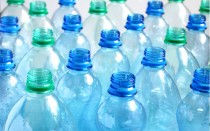Replacing Your Chemical-Leaching BPA Plastics
Mike Barrett
Activist Post
Every parent loves having plastic containers and plastic bottles around for their children.
Plastic containers can be extremely useful as they don’t weight much and can’t break into a hundred pieces if dropped or slammed.
While the convenience plastic containers provide is quite tempting, many parents are unaware that this convenience actually comes with a health-impacting price, especially for young children.
The Problems with Using Plastic — Chemicals Leaching in Your Food
While plastics can be extremely useful, the uses unfortunately fall quite short when looking at the harmful health attributes that many plastic products possess.
Plastics oftentimes contain a number of damaging chemicals that when ingested through leaching into your food from the container, cause serious health complications.
They contain polybrominated diphenyl ethers (PBDEs) which are actually flame retardants and have been shown to disrupt thyroid function and cause reproductive problems.
In addition, many plastics are made with phthalates, toxins also shown to cause reproductive problems, and bisphenol-A (BPA), a chemical widely known for causing fertility issues as well as feminism in boys.
Sadly, there is no surefire way to not ingest these chemicals when consuming foods or beverages which have been stored in plastic containers. As food or a liquid sits in the container, chemicals slowly leach out from the plastic and move right on into whatever is being stored in it. This leaching effect is amplified greatly when plastic is exposed to any amount of heat as well. In fact, microwaving plastic containers or bottles as well as placing a hot substance in the container or bottle results in a mega BPA transference with the chemical leaching 55 times faster than when the plastic and substance are cold.
In addition to heat being a factor for chemical leaching, the chemicals may leach faster if the container is put in the dishwasher often or if it is washed with harsh detergents or cleaning agents.
Moving Away from Plastic
Switching over from plastics to glass or ceramic materials could be one of the best health choices you make. If not for yourself, then for your child. Small, undeveloped bodies are especially impacted by not only chemicals residing in plastics, but anything that may have a severe biological impact. By taking away the ingestion of these chemicals, you are significantly taking away from the future prevalence of many potential health conditions.
Not only is it important to completely move away from plastic to avoid future ingestion of these chemicals, but you should also take measure to reverse the effects of chemicals like BPA.
Explore More:
- Study: Most Plastics Leach Hormone-Like Chemicals
- Even BPA-Free Plastics Leach Harmful Chemicals
- Bisphenol A: How to Reduce BPA Exposure From Food
- Gender-Bending Chemical Detected in 91 Percent of Canadians
- Popular Plastic Chemical BPA Linked to Wheezing in Children
Please visit Natural Society for more great health news and vaccine information.


